Gordon Anderson grew up in the 1940s in Dundee’s Ellengowan cottage flats which have now vanished in the name of progress.
The old Ellengowan Drive was the backdrop to a memorable childhood which he has now documented with his sister Mary Firth and cousin Alison Gibson.
Gordon lived on Ellengowan Drive from 1948 until 1952 in the 1920s flats which have been pulled down as part of the £20.5 million redevelopment of the area.
My Ellengowan Story was written after Gordon’s visit to the new housing development earlier in 2022 which prompted him to put those memories down in print.
Gordon grew up in Dundee when jute was king, the city’s dockyards were in full swing and the din was compounded by the constant clatter of passing trams.
Gordon said: “We arrived in Ellengowan not long after the end of World War Two.
“My sister Mary remembers travelling by bus with either my mother and father not long after we arrived, and passing a bombed building which had not yet been rebuilt.
“The front of a tenement had been wiped out, leaving a pile of rubble below.
“It was like an open dolls’ house; various floors of the building could be seen with fireplaces visible and wallpaper still adhering to the walls.
“However, Ellengowan wasn’t completely new to us.
“We used to visit my grandmother who lived at number 52.
“Those visits were the first times I had been inside a house which had electric lights and a proper bathroom!
“The three of us, my mother, me and my sister, had travelled by train from Balnaguard to Dundee, where we arrived at the West Station.
“The only thing I was carrying, as well as my school-bag on my back, was a square wooden box which contained my toys – a few small cars, some dominoes and some building bricks.
“Our father met us and took us to our new house.”
Ellengowan Drive
Gordon can still remember entering it for the first time.
He said: “There was a living room, two bedrooms, a bathroom and a small kitchen, which my parents called the kitchenette.
“Mary remembers the chimneys in Ellengowan often going on fire – and the distinctive sour and penetrating smell from these chimney fires.
“Our chimney sweep, Mr Marr, must have been a good chimney sweep because I do not think our chimney ever went on fire!”
Gordon said the family had limited income – which was common at the time.
However, their mother still made sure to treat them!
He said: “We did not eat out in restaurants, although my mother did occasionally take Mary to the café in D. M. Browns, a large department store, on their morning shopping expeditions.
“It was rather elegant, with waitress service only.”
Transport in Ellengowan
While no one in the street had a car, Gordon still found it easy enough to travel from Ellengowan to school in Dundee thanks to the regular bus service.
He said: “My dad used to teach at Dundee High School so we used to get the bus together.
“We always went to the upper deck of the bus because in those days it was acceptable for people, such as my Dad, to smoke upstairs.
“While I did not like being among smokers and being in an unpleasant atmosphere, you got great views of what was going on around you from the upper deck.
“Returning home from school was equally easy for me, although I had to travel home on my own since my classes ended at 15.10, while my Dad did not finish until 4pm.”
“I am sure modern parents would not expect a boy or girl aged six years to do that journey from the centre of Dundee to Ellengowan unaccompanied!”
People would walk longer distances in those days to do their buying and selling.
Gordon said: “Our mother would walk with me and Mary (who was usually in a pushchair or pram) to a very nice baker’s shop she liked near the top of Princes Street.
“At the baker’s shop, Princes Street slopes downwards.
“One windy day, when I was inside the shop with our mother, we looked out of the shop window and saw Mary’s pram moving down the hill.
“Our mother rushed out, with me following.
“The pram had partially turned around as it had rolled downhill into a small side street.
“The side street was also on a steep slope and the pram turned over.
“My sister was unharmed and our mother quickly sorted the pram and the three of us were able to proceed home – although our mother was clearly quite stressed by the experience!”
The city’s once-triumphant jute industry was still very active and visible in Dundee when Gordon and his family were growing up in Ellengowan.
He still has vivid memories of horse-drawn wagons carrying loads of jute passing him at the bus stop on Commercial Street.
He added: “When travelling by bus in the morning with my father, we would pass a jute mill in action on the Arbroath Road.
“The door of the jute mill was almost always open and you could see the workers, mainly women, and hear the noise of the machines.
“My father would sometimes take me for a walk to the Dundee docks – not too long a walk even for a young boy of six or seven years – and we would go to the King George V wharf to watch bales of jute being unloaded.
“The dock workers had special trolleys to transport the bales from the wharf side, to places of storage.
“Sometimes we would walk further along to the Caledon shipyards, to watch one or two new vessels being constructed.
“I once had the exciting experience of watching a ship at the Caledon shipyard being launched.”
Dundee looked very different when trams were on the roads in the 1940s although their network of lines would soon be outgrown by the developing city.
Gordon said: “I remember their distinctive noise as they trundled along the roads.
“Cars were allowed to overtake them on the left side, between the pavement and the tram rails.
“At the destination of all the tram lines, the conductor had to walk through the trams, pushing over the backs of all the seats, so that they would be suitable for passengers travelling in the opposite direction.”
End of an era
The Anderson family’s time living at Ellengowan Drive came to an end in April 1952 when Gordon’s father took a new job at Madras College in St Andrews.
He said: “The major event which I can remember as a nine-year-old boy shortly before we left Dundee was the death of King George VI.
“I can still remember the bill-boards showing the message: ‘The King is Dead’.
“Our family moved in time for me to attend the third and final term of the academic year in Primary 5 at Madras College. It was also a big change for my sister Mary.
“Having celebrated her fifth birthday in February 1952, she started her schooling in Primary 1 at Madras College. As a family, we continued to have a house in St Andrews until our father’s death in 1972, and our mother’s death in 2008.”
Gordon lives with wife Marjory in Dunkeld and they have two grown-up sons and he splits his time between Scotland and business assignments in Cyprus.
His sister Mary is now married and lives in Edinburgh with her husband, Willie.
They have two sons.
So were things better back then?
Gordon concluded: “I do not remember hearing anyone in those years complaining about money or about their houses.
“My whole account presents a positive picture of the houses of Ellengowan, of the people who lived there, and how it was a good and safe place to live for young children like me, my sister Mary, and our cousin, Alison Gibson.
“People, on the whole, seemed to be reasonably happy and contented with their lives.
“I am left with so many wonderful memories.”
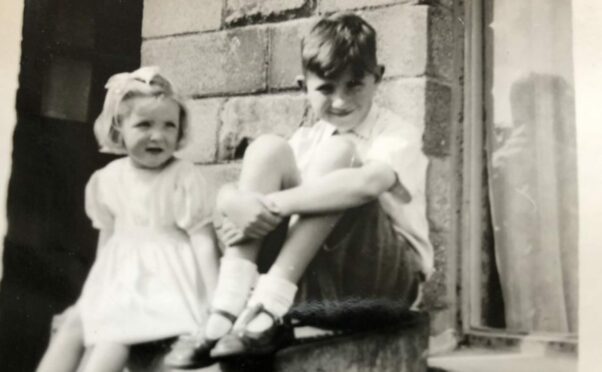
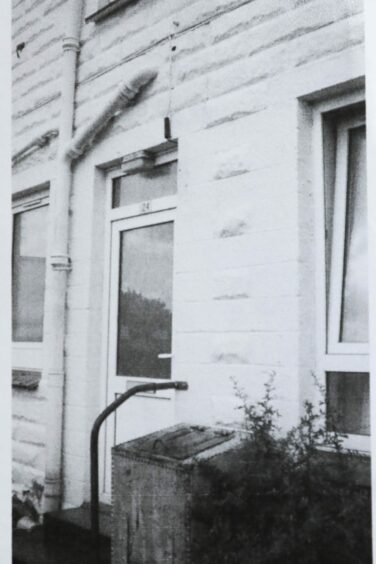
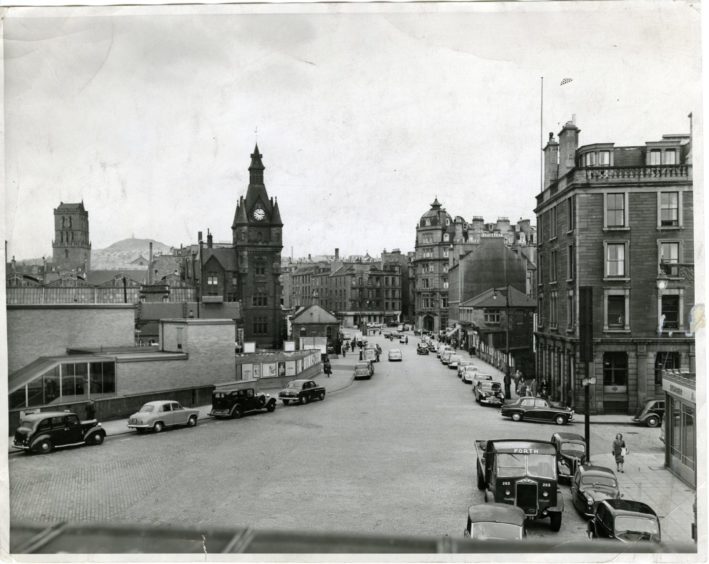
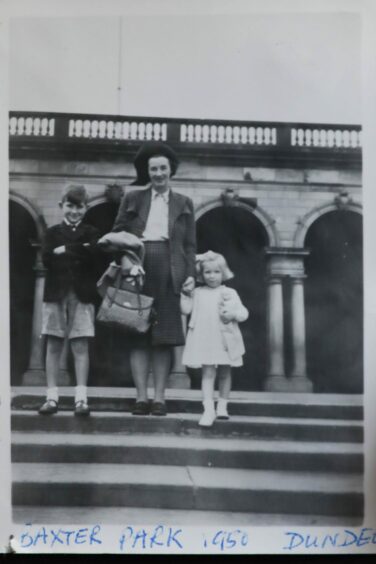
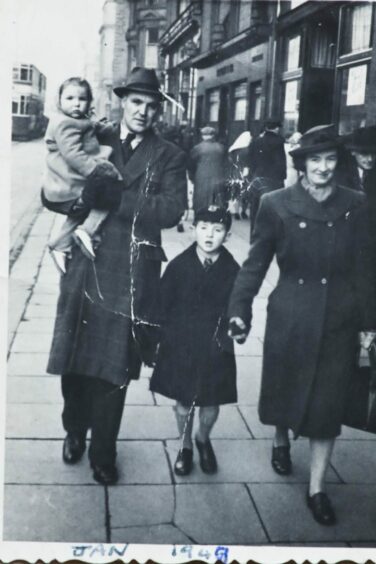
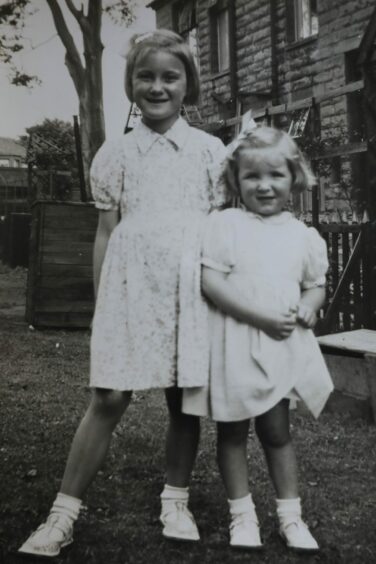
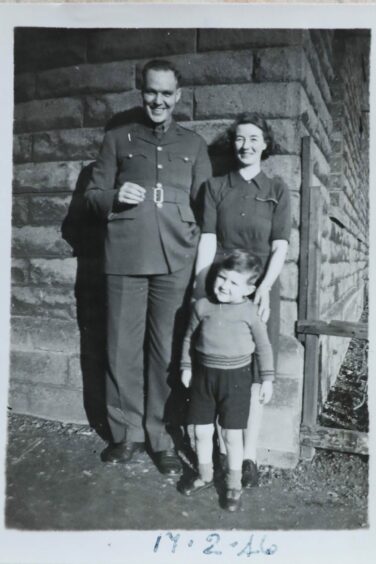
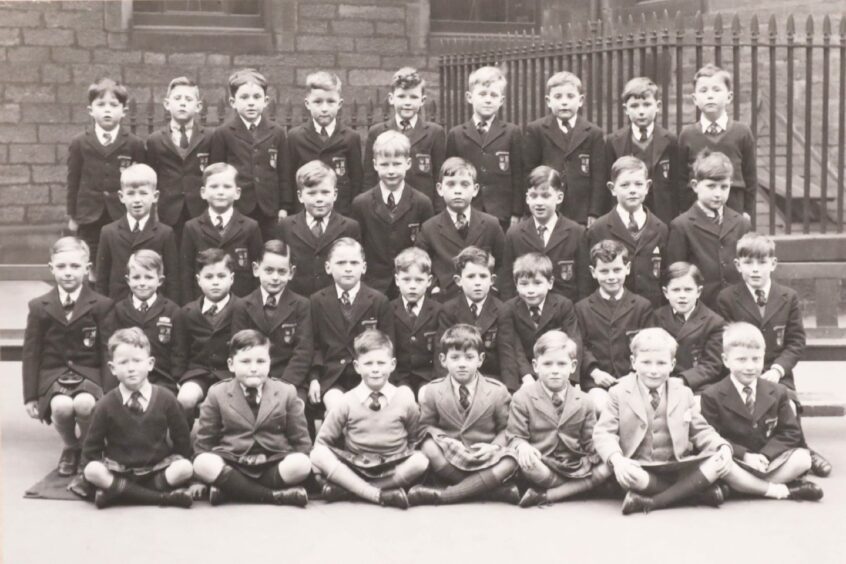
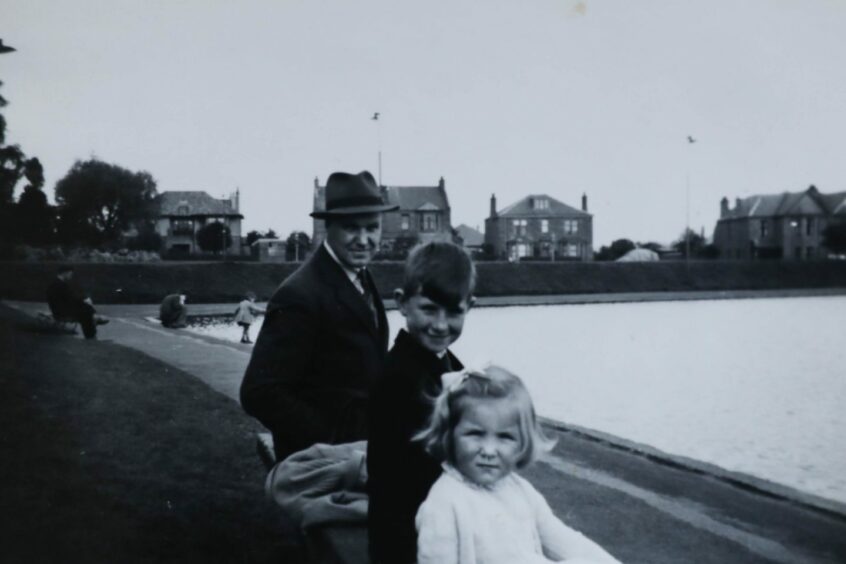
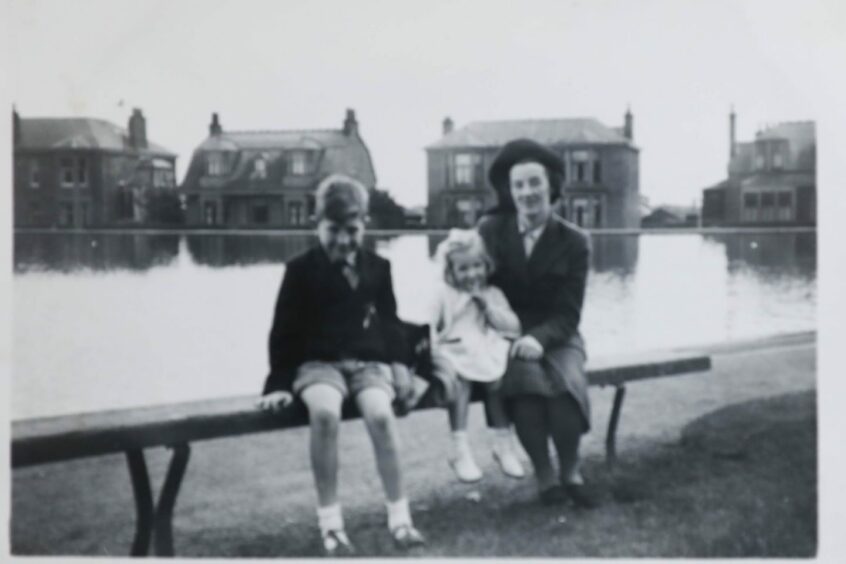
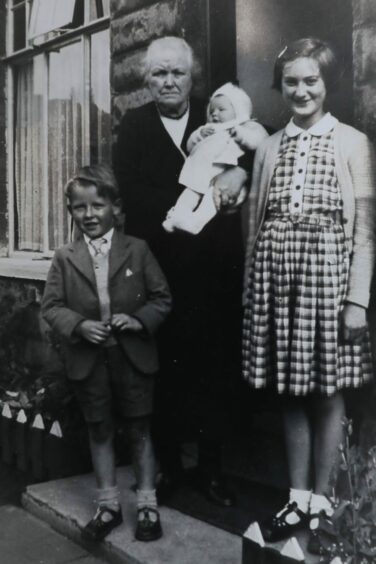
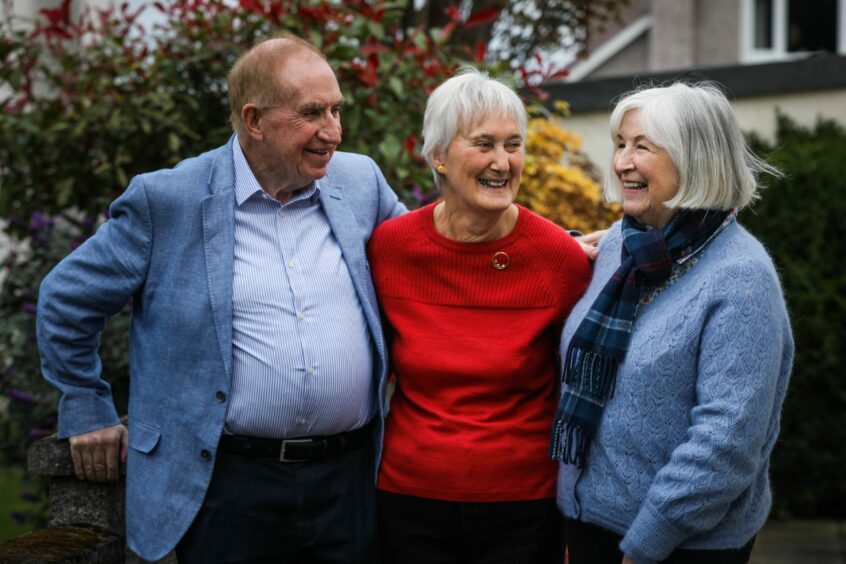

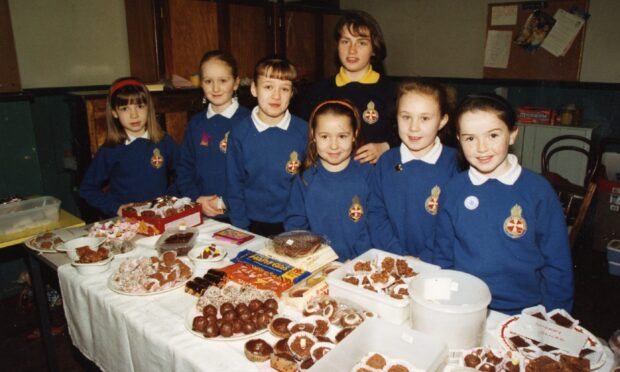





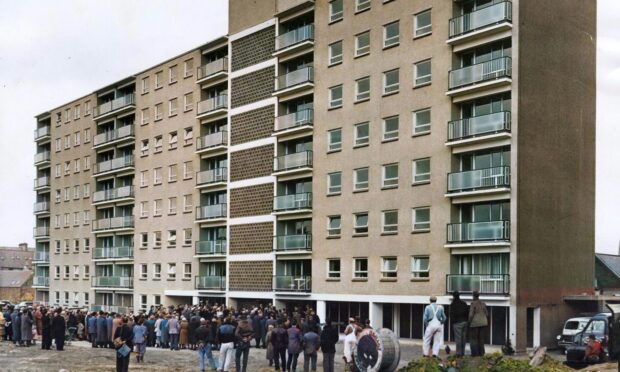

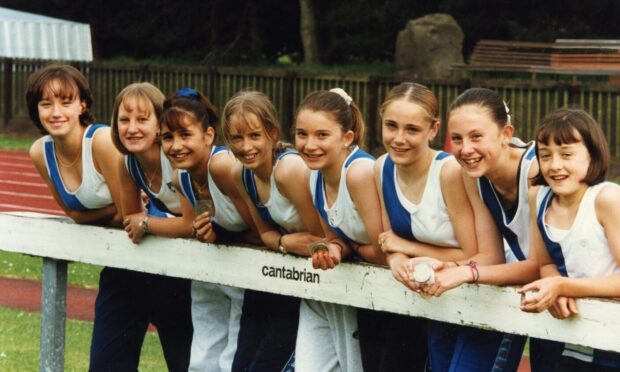
Conversation